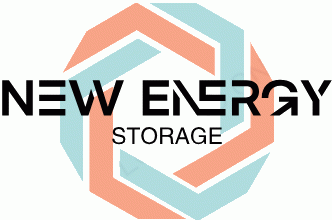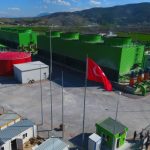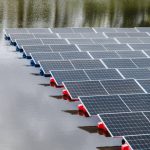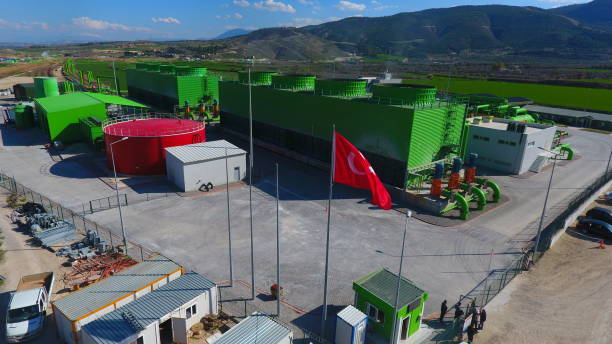As Turkey intends to reduce its carbon footprint and move toward a greener tomorrow, its green energy strategy is also evolving at a rapid rate. The approach in this case is the integration of renewable energy initiatives and cutting-edge energy storage technology. Turkey’s bold idea is to invest massively in grid-scale energy storage to enable the incorporation of renewable energy, stabilize the grid, and adopt wholesome consumption of energy.
Renewable Energy Projects in Turkey
Turkey is now a regional leader in renewable energy projects with massive investments in solar, wind, and hydroelectric power. The government has been supportive of the growth of renewable energy with domestic and foreign investment. Not only do the projects become essential to maintaining greenhouse gas emissions at equilibrium, but they also play a role in ensuring energy supply for a country with rising energy needs.
Key points are:
- Government Incentives:Tax relief, government subsidies, and ease of permitting have boosted investment in renewable energy.
- Public-Private Partnerships:Public-private partnerships provide for project execution and also finance.
- Technological Advancements:Evolving technologies are used, which enhance efficiency as well as reducing the cost of renewable energy systems.
Grid-Scale Energy Storage Integration
Grid-scale energy storage systems are one of the chief pillars of the green energy policy of Turkey. They mitigate intermittency of power from renewable energy sources, e.g., wind and solar power, by storing excess power generated during peak generation hours and reselling it when there are high demands.
Solar benefits of Grid-Scale Energy Storage:
- Grid Stabilization:Energy storage systems stabilize demand and supply and ensure a consistent and stable source of power.
- Efficiency Enhancement:Coordination between energy flows, such systems achieve maximum overall efficiency and reduce wastage.
- Mitigation of Environmental Footprint:Energy storage systems reduce the dependency on fossil fuels, thus decreasing carbon footprints and bringing cleaner energy.
Green Energy Practices
Turkey’s adoption of green energy can be seen in its efforts towards integrating renewable means of energy with advanced storage technologies. Turkey is taking the lead towards a green, clean future with its focus on sustainable strategies. Energy storage technology with the minimum level of intrusion into the environment must be created to meet these demands.
Green Energy Strategies
- Green Use of Materials:Utilization of recyclable and low-toxicity material in energy storage devices.
- Effective Waste Management:Excellent recycling scheme for used batteries and other components.
- Clean Production:Energy-efficient manufacture as top priority with limited overall carbon footprint.
Challenge to the Energy Storage Industry
Turkey has progressed well but a sequence of challenges to the energy storage industry could deny complete integration of renewable energy:
Major Challenges
- Heavy Upfront Investments:New energy storage technologies are expensive to invest in upfront, which discourages bulk adoption.
- Regulatory Barriers:Stringent regulation and permits are still major barriers to new projects.
- Technological Maturity:While innovation is exciting, most of the energy storage technologies are still early stages of commercialization and must continue to mature.
- Competitive Market:The technically qualified and internationally experienced industry players are the strong competition, which compels the local firms to innovate on a daily basis.
Best Practices in Energy Storage System Integration
In order to overcome these challenges, Turkey is proactively adopting best practices for the integration of energy storage systems into renewable energy projects. The practices ensure that the investment is optimized for efficiency and long-term profitability.
Best Practices Include
- Large Scale System Design:Adequate planning and design of energy storage facilities to match the profiles of the local generation from renewables with local grid conditions.
- Continuous Monitoring and Maintenance:Incorporation of stringent maintenance processes and internet-based monitoring systems to detect and repair performance failure on time.
- Implementation of Smart Energy Management Systems:Use of advanced software and IoT technologies for energy flow optimization, predictive maintenance needs, and overall efficiency improvement.
- Training and Capacity Building: Funding for training the labor force and developing local capacity for next-generation energy storage technology to enable operation and maintenance of the system.
Application of Energy Storage Technology in Microgrids
Microgrids are emerging as a vital solution for areas of doubtful grid availability. Microgrid applications in Turkey are integrating energy storage technologies to enhance resilience, reduce costs, and enhance energy security.
Key Benefits
- Local Control: Microgrids allow communities to take charge of their own energy, and hence are less dependent on central grid collapse.
- Improved Reliability: Microgrid storage capacity offers uninterruptible power supply during times of disturbance or peak load hours.
- Adaptable Solutions: Microgrid schemes can be tailored to match local requirements, and thus may be installed in urban regions as well as rural zones.
The market drivers that are driving the energy storage business in Turkey are driven by a combination of policy from government, technology innovation, and economics. The outlook for renewable energy in Turkey is strong, with continuing innovation in grid-scale energy storage and firm support for renewable energy practices.
Future Trends
- More Investment:Search for robust investment flows into energy storage initiatives as governments and private institutions work to meet renewable energy targets.
- Breakthroughs in Technology:Ongoing R&D will result in better, affordable, and reproducible energy storage technologies.
- Changing Market Competition:Foreign competition in the marketplace coming into Turkey will force local companies to innovate just to stay competitive.
- Reforms in Policy:Ongoing regulatory refinement will ease project approvals and spur high-end energy storage system installations.











